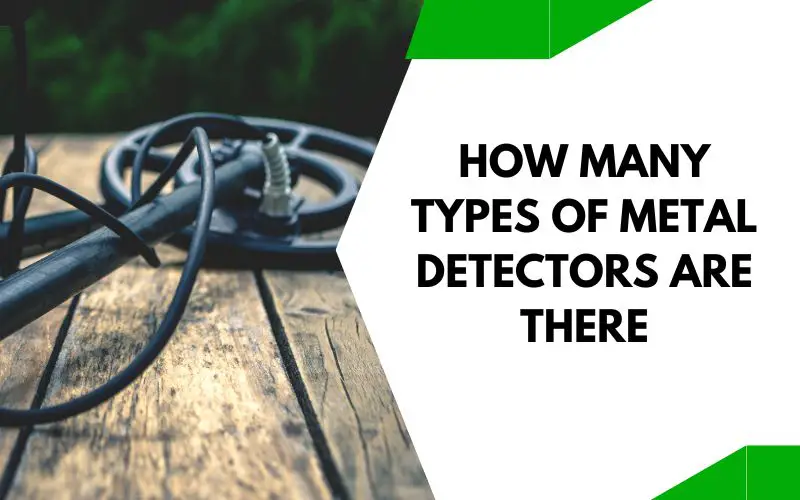
A weird fact is that many hobbyists don’t really understand the difference between metal detector types. This often leads them to choose the wrong machine for their specific needs …
… This article will guide you through the various types of detectors out there by exploring their unique features and use cases.
Regardless of your level … beginner or a seasoned treasure hunter, you’ll find some highly valuable insights! You can thank me later … LOL!
Very Low Frequency (VLF) metal detectors
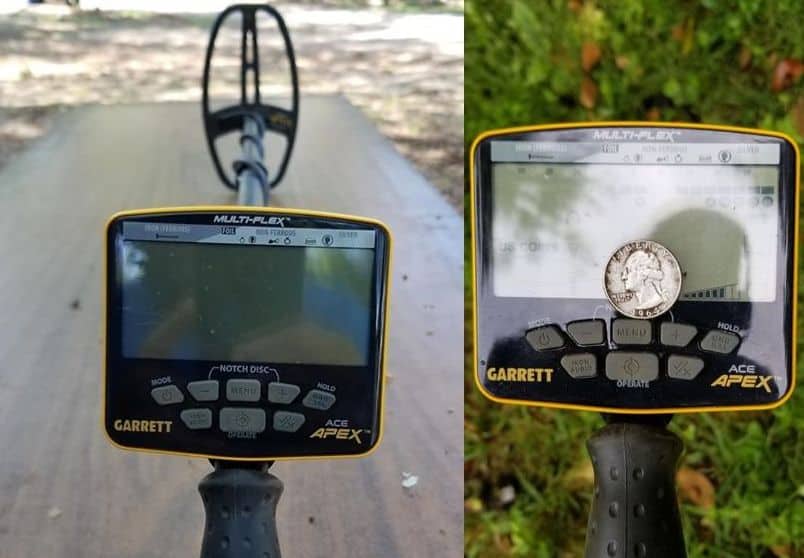
Very Low Frequency (VLF) metal detectors are the most used type by hobbyists and even professionals.
They work by transmitting a continuous very low frequency waveform (usually ranging of 3-30 kHz).
They also consist of two coils:
- Transmitter coil: Sends out the magnetic field.
- Receiver coil: Picks up the response from the metal object in the ground.
Once the transmitted magnetic field hits a metallic object (Your potential target), it causes a reaction that the receiver coil detects. The latter, amplifies and processes them into signals that can be heard through a speaker or seen on a display.
Check out my favorite VLF Metal Detector …
VLFs are usually good at discriminating between different types of metals … Thus you can use them for multiple purposes like treasure hunting, gold prospecting, or relic hunting.
Pulse Induction (PI) metal detectors
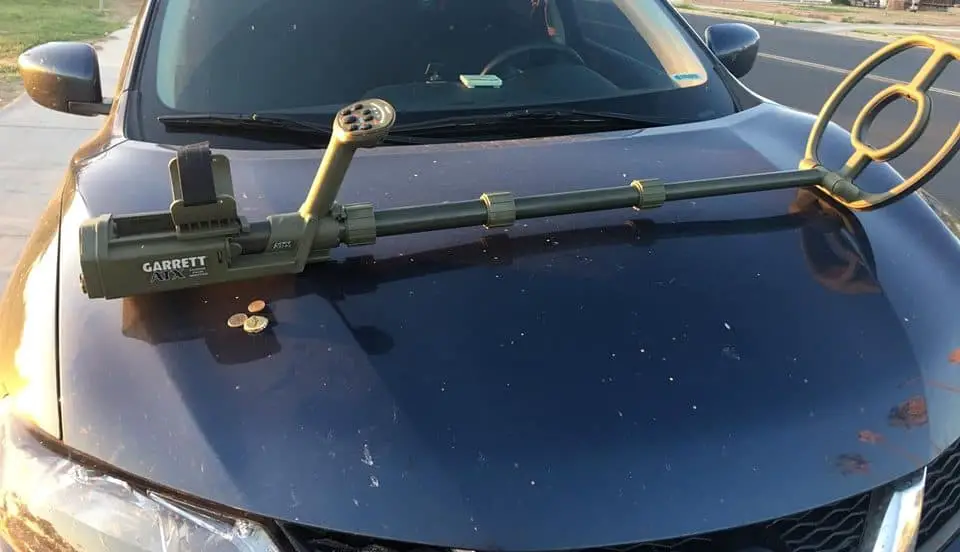
Pulse Induction (PI) metal detectors are primarily used in areas of high mineralization … These include places like saltwater beaches or gold prospecting in mineral-rich soils.
Unlike VLFs that use a continuous waveform, PIs operate by emitting a powerful magnetic field pulse into the ground and then switching off. This allows it to listen for any return signals from metallic objects (Like Small Gold nuggets).
PI detectors (You can have a look at these PI detector examples) consist generally of a single coil acting both as a transmitter and a receiver. Once it emits a pulse, metal objects respond by generating a reflective pulse …
This pulse decays at a different rate depending on the metal’s characteristics (Like conductivity). This allowing the machine to recognize and signal the presence of a potential target.
PI detectors are not the best at differentiating between types of metals. Yet they excel when it comes to sensitivity towards deeper objects and smaller objects.
Beat Frequency Oscillation (BFO) metal detectors
Beat Frequency Oscillation (BFO) metal detectors are the simplest and most cost-effective.
A BFO detector usually comes with two coils of wire – one in the search and another one in the control box.
When the search head passes over a metallic target, it disrupts the frequency of the search coil. This disruption results in a frequency difference between the control box and head coil …
The BFO machine translates this beat frequency into an audible tone signaling the presence of a metallic target.
Keep in mind that BFOs are less accurate when it comes to distinguishing metal types and also have less depth range than VLF or PI models. However, they are ideal for beginners due to their simplicity.
Multi-frequency metal detectors
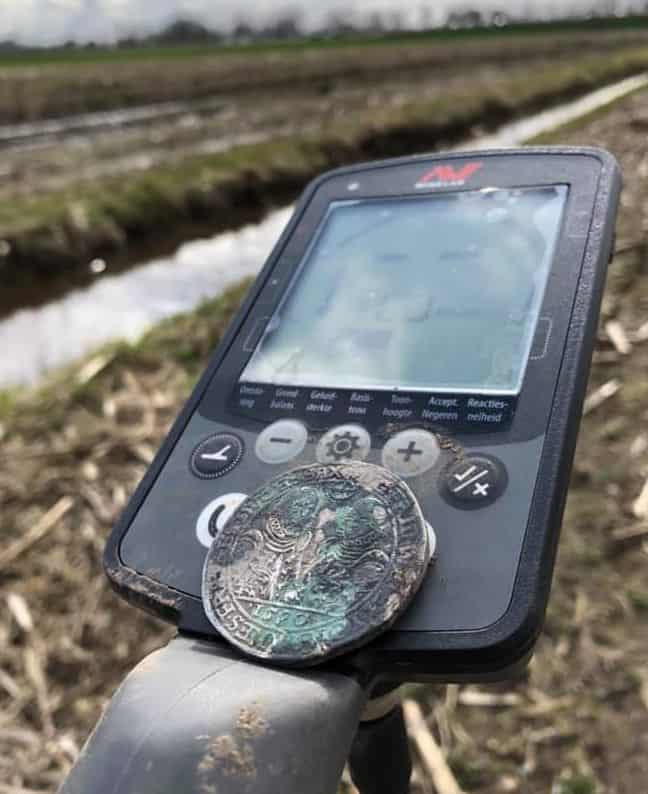
Multi-frequency metal detectors operate on more than just one frequency at the same time. This makes them highly versatile by detecting different types of metals at the same time.
Check out my favorite Multi-frequency Metal Detector … You can check other examples Here.
These detectors are conceived to adapt to varying ground conditions and are proven to be very effective to distinguish between valuable objects and unwanted junk.
They can detect both small, low conductive targets (like gold nuggets) and large, high conductive targets (like silver coins) simultaneously …
This won’t only save you time, but also will allow you to detect in diverse environments, from saltwater beaches to highly mineralized grounds.
Gold-specific metal detectors
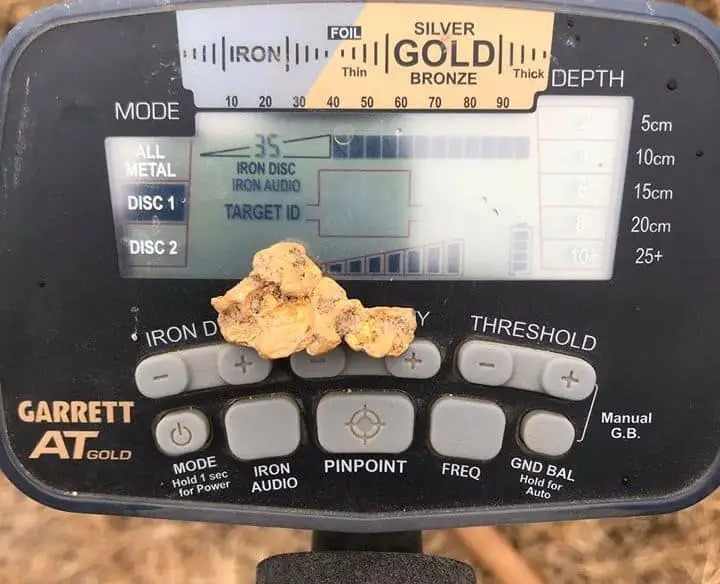
Gold detectors are specifically designed to find gold nuggets. These are often smaller and located deeper in the ground …
These detectors typically operate at higher frequencies (up to 71 kHz)! Indeed, gold’s low conductivity responds better to these frequencies.
These machines come with advanced ground balance settings … This allows them to handle highly mineralized environments often associated with gold hot spots.
They also have solid discrimination capabilities to help distinguish gold from iron, lead, or other junk metals.
You can learn more how these metal detectors are able to find Gold!
Underwater metal detectors

Underwater metal detectors are designed to operate in areas like shallow beach waters and deep-sea diving.
They’re waterproof up to a certain depth to allow users to search for submerged metallic targets. There are two main types:
- VLF variance that can operate very well for saltwater and mineral-rich environments (May pick up more trash though).
- PI variance which can ignore minerals in the environment but are less discriminating between different metal types.
Some models come with submersible coils, while others are fully submersible.
If you are interested in this type of detection, then I highly recommend you have a look at those underwater metal detecting hacks!
Industrial and security metal detectors
Industrial and security metal detectors are specialized tools used in various industries for purposes like safety, quality control, and loss prevention.
They operate using the same basic principles but are designed for other specific applications.
Security metal detectors, commonly used at airports, concert venues, and government buildings, are designed to detect metallic objects on a person to ensure safety by detecting things like weapons or prohibited items.
Industrial metal detectors are used in industries such as food processing, construction, and mining …
- In the food industry, they ensure products are free from metal contaminants.
- In construction and mining, they can locate underground utilities or mineral deposits.
These detectors may be integrated into production lines for automated inspection. They play a crucial role in maintaining the quality, safety, and efficiency of industrial processes.
Final Thoughts …
After venturing through the diverse landscape of metal detectors … Hopefully, you’ve now clearly uncovered their unique features and applications.
I believe you’re now equipped to choose the perfect detector for your specific needs …
I’ve crafted this full guide to assist you in choosing the right metal detector; I highly recommend taking a look!
